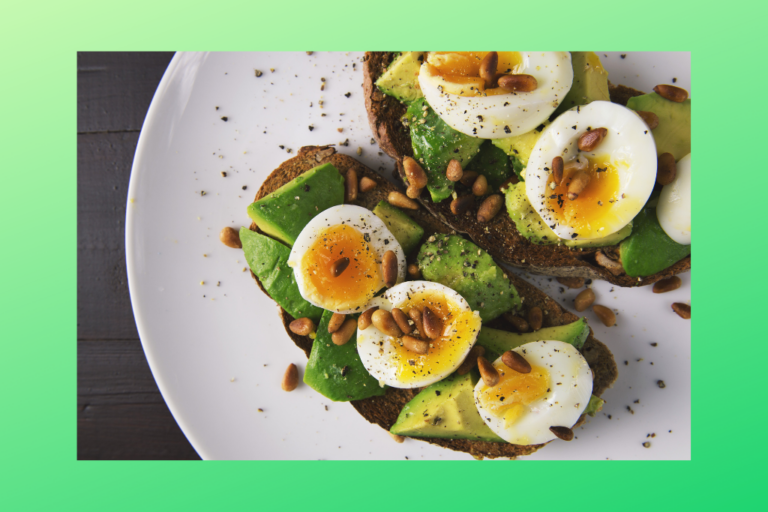10 Pesky Hidden Calories You Didn’t Know About
Have you ever thought you were nailing your nutrition goals only to be surprised by stalled progress? You’re not alone. Sometimes, it’s not the big indulgences but the hidden calories sneaking into your meals that are quietly tipping the scale. Hidden calories are those pesky little energy sources that creep in through everyday habits and seemingly harmless foods. If you’re working hard to maintain a calorie deficit, these subtle saboteurs can be the reason results are slow to show. In this article, we’ll uncover 10 common culprits and talk about how these hidden calories could be fueling obesity without us even realizing it.
Recent studies have emphasized this concern. A 2020 study published in the journal Nutrients found that under-reporting and unawareness of hidden calories, especially from cooking oils and condiments, led to significant discrepancies in daily energy intake estimates. Another study in The American Journal of Clinical Nutrition (2018) showed that liquid calories from drinks and added fats are often not perceived by individuals, contributing to unintentional overeating.

1. Hidden Calories in Olive Oil
Hidden Calories: Olive Oil, the Healthy Culprit
Yes, it’s heart-healthy, but olive oil is one of the top sources of hidden calories in food. Just 2 tablespoons of olive oil pack around 240 calories! And let’s be honest: when you’re drizzling it over veggies or using it to “lightly” coat a pan, who really measures?Tip: Use a spray bottle to control portions or switch to a low-calorie cooking spray. If you’re watching your macros or using a hidden calories calculator, it’s crucial to account for those glugs of oil.

2. Butter
Hidden Calories in Butter: A Toasty Trap
That innocent pat of butter on your morning toast? It adds up. One tablespoon of butter has about 100 calories. And if you’re cooking with it or layering it on baked potatoes, it can snowball quickly.Butter is a prime example of hidden calories fueling obesity, especially when added to foods we already perceive as “healthy.”

3. Salad Dressings
Hidden Calories Dressing Danger
We love a good salad, but store-bought dressings can be calorie bombs. Some creamy versions contain more than 150 calories per 2 tablespoons. And again, who stops at just 2 tablespoons?
Hidden calories dressing varieties like ranch, Caesar, or honey mustard can transform your virtuous bowl of greens into a sneaky diet buster.

4. Mayonnaise
Hidden Calories Mayo Edition
Mayonnaise is another creamy condiment that’s brimming with hidden calories. A single tablespoon clocks in at around 90-100 calories.
Add a few spoonfuls to a sandwich or wrap, and you’ve unknowingly added a few hundred calories to your meal. Try Greek yogurt or mustard as lighter alternatives.

5. Guacamole
Calories in Guacamole: When Good Fats Go Wild
Avocados are great, but their calorie count can be surprisingly high. A small bowl of guac can easily pack 300-400 calories. The calories in guacamole are mostly healthy fats, but they still count toward your daily intake.
If you’re enjoying Chilean guacamole with chips, those chips bring their own hidden calories to the party. Double trouble!

6. Cooking Oils
Hidden Calories in Vegetable Oil
Whether it’s sunflower, canola, or vegetable oil, they all come in at about 120 calories per tablespoon. Often used in frying or sautéing, these oils can turn a low-calorie dish into a caloric stealth bomb.
What foods have hidden calories? Cooked vegetables, stir-fries, and even lean proteins can carry these hidden calories if they’re cooked in excess oil.

7. Smoothies & Juices
Hidden Calories in Drinks: Smoothie Snares
Smoothies are healthy, right? Not always. Many store-bought or even homemade versions contain fruit juices, nut butters, honey, and full-fat yogurt, adding hundreds of untracked calories.
Hidden calories in drinks are one of the biggest traps for health-conscious eaters. Always check the ingredients and try using water or unsweetened almond milk as your base.

8. Coffee Add-Ins
Hidden Calories Lurking in Your Latte
That morning coffee might seem harmless, but flavored syrups, whipped cream, and even milk can turn your cup into a 300-calorie dessert.
Calories in, calories out only works if you count everything—including those frothy extras.

9. Sauces
Sneaky Sauce Saboteurs
What do hidden calories mean? They’re the ones we don’t account for but that still affect our energy balance. Sauces are a big culprit.
Barbecue, sweet chili, hoisin, teriyaki—they all sound delicious, but each tablespoon can bring 50-100 hidden calories. And no one ever stops at one tablespoon!

10. Nuts and Nut Butters
Nuts: The Healthy Snack That Adds Up
Yes, they’re nutrient-rich, but easy to overeat. Just a handful of almonds can contain 160 calories, and a couple tablespoons of peanut butter can deliver 200+.If you’re not measuring, these hidden calories can quietly derail your efforts to stay in a calorie deficit.
Key Takeaway: Awareness is Your Best Friend
The idea of hidden calories might seem daunting, but it’s all about awareness and balance. Most of these foods are not inherently bad—in fact, many are healthy when used appropriately. But when we underestimate how much we’re consuming, especially with oils, condiments, and drinks, the scale doesn’t lie.Being mindful of hidden calories in food, especially when you’re aiming for fat loss, can make a huge difference.
Use tools like a hidden calories calculator, measure your oils, and don’t be afraid to swap out high-calorie add-ons for lighter alternatives. Remember: it’s not about depriving yourself but about making informed choices. In the end, successful nutrition is built on little habits that add up—just like those sneaky calories.
FAQs
What foods have hidden calories?
Common food groups include:
– Cooking oils (especially hidden calories olive oil and vegetable oil)
– Condiments (like mayo, salad dressings, and sauces)
– Beverages (smoothies, coffees, juices)
– Snacks (nuts, trail mixes, even “healthy” bars)
– Dips (such as hummus or calories in guacamole)
What do hidden calories mean?
Hidden calories are those that we consume unknowingly or unintentionally. They’re often found in small additions like sauces, dressings, and oils, or in foods marketed as “healthy” but packed with more energy than expected. These calories may not be accounted for, but they absolutely count in the calories in, calories out equation.
How do I keep track of hidden calories?
– Measure and weigh high-calorie ingredients.
– Read labels carefully.
– Track your meals with an app that includes custom ingredients.
– Be mindful of cooking methods.
How to read the label for hidden calories?
Check the serving size first. Many products look low in calories until you realize a serving is just one tablespoon. Look for high-fat ingredients like oils, nuts, and sugars. Be especially cautious with terms like “light,” “natural,” or “organic”—they don’t always mean low calorie.
Being aware of hidden calories fueling obesity is a powerful first step toward better health. Start small, stay consistent, and those tiny calorie tweaks can lead to big results.


